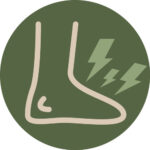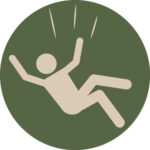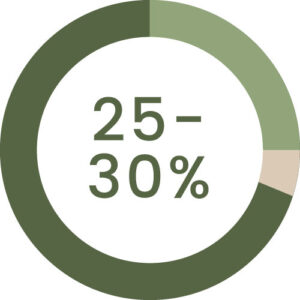Imagine you are just settling in for the night with your favorite TV show playing or a new book and suddenly your feet start to get numb and tingly; this could be a sign of Peripheral Neuropathy.
Neuropathy is damage or dysfunction of one or more nerves that results in numbness, tingling, muscle weakness, and pain in one or more areas of the body. Neuropathy typically begins in the hands and feet, but can occur in other parts of the body as well.
Often called ‘peripheral neuropathy’, neuropathy indicates that there is an issue in your peripheral nervous system. This is the network of nerves outside of your brain and spinal cord. Neuropathy happens when these nerve cells (neurons) are damaged or destroyed, disrupting the way that your nerve cells and brain communicate.
The most common feelings associated with neuropathy are numbness, tingling (“pins and needles”), and weakness in the area of the body affected (i.e. your hands or your feet). You may also experience other sensations such as sharp, lightning-like pain or a burning or throbbing pain. More symptoms include:




Very common. An estimated 25%-30% of Americans experience neuropathy. While this condition can affect people of any age it is more prevalent in older adults.
The highest risk factors for neuropathy are:
People in certain professions that require repetitive motions are also at risk for the development of neuropathy due to trauma or compression of nerves. Some neuropathies develop slowly, over months or years, while others develop rapidly and continue to quickly get worse.
Dr. Squires will complete a full history and physical exam, including reviewing your symptoms and asking questions about your current and past medications, history of trauma, line of work and social habits, family history of diseases, and your diet. A neurologic exam will then be performed to check your coordination, balance, muscle strength and tone, and your ability to feel sensations such as light touch or proprioception. After a complete history and examination we will then discuss your treatment options.
